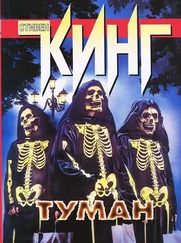She pauses to think, then restarts the recording.
“Dr. Morton called last night. It’s been awhile, but I knew who it was right away, and I knew it was going to lead back to Ondowsky. I remember something else you said once, Ralph: there’s evil in the world, but there’s also a force for good. You were thinking about the piece of menu you found, the one from a restaurant in Dayton. That fragment linked the murder in Flint City to two similar murders in Ohio. That’s how I came to be involved, just a little scrap of paper that could have easily blown away. Maybe something wanted it to be found. I like to think so, anyway. And maybe that same thing, that force, has something more for me to do. Because I can believe the unbelievable. I don’t want to, but I can.”
She stops there and puts her phone in her purse. It’s still way early to go to the airport, but she will, anyway. It’s just how she rolls.
I’ll be early to my own funeral, she thinks, and opens her iPad to find the nearest Uber.
5
At five in the morning, the cavernous airport terminal is almost completely deserted. When it’s filled with travelers (sometimes absolutely bursting at the seams with their chattering bustle) the music floating down from the overhead speakers is barely noticeable, but at this hour, with nothing but the hum of a janitor’s floor-buffer to compete with, Fleetwood Mac’s “The Chain” sounds not just eerie but like a harbinger of doom.
Nothing is open on the concourse except for Au Bon Pain, but that’s good enough for Holly. She resists the temptation to put another coffee on her tray, settles instead for a plastic cup of orange juice and a bagel, and takes the tray to a table at the back. After looking around to make sure no one is close (she is, in fact, the only current customer), she takes out her phone and resumes her report, speaking low and stopping every so often to marshal her thoughts. She still hopes Ralph will never get this. She still hopes that what she thinks may be a monster will only turn out to be a shadow. But if he does get it, she wants to make sure he gets all of it.
Especially if she’s dead.
6
From Holly Gibney’s report to Detective Ralph Anderson:
Still December 16th. I’m at the airport, got here early, so I have some time. Actually quite a bit.
[ Pause ]
I think I left off by telling you that I knew Dr. Morton right away. Had him from hello, as the saying is. He said he’d checked with his lawyer after our last session—out of curiosity, he claimed—to find out if I was correct when I said that putting me in touch with another patient’s therapist wouldn’t be an ethical breach.
“It turned out to be a gray area,” he said, “so I didn’t do it, especially since you elected to stop therapy, at least with me. But the call I got yesterday from a Boston psychiatrist named Joel Lieberman made me reconsider.”
Ralph, Carl Morton has actually had news of another possible outsider for over a year, but he didn’t call me. He was timid. As a timid person myself I can understand that, but it still makes me mad. Probably it shouldn’t, because Mr. Bell didn’t know about Ondowsky then, but it still
[ Pause ]
I’m getting ahead of myself. Sorry. Let’s see if I can keep this in order.
In 2018 and 2019, Dr. Joel Lieberman was seeing a patient living in Portland, Maine. This patient took the Downeaster—I assume that’s a train—to keep his once-monthly appointments in Boston. The man, Dan Bell as it turns out, is an elderly gentleman who seemed perfectly rational to Dr. Lieberman except for his firm belief that he had discovered the existence of a supernatural creature, which he called a “psychic vampire.” Mr. Bell believed that this creature had been around for a long time, at least sixty years and perhaps much longer.
Lieberman attended a lecture Dr. Morton gave in Boston. Last summer, this was—2019. During his lecture, Dr. Morton discussed the case of “Carolyn H.” Me, in other words. He asked any attendees who had patients with similar delusions to get in touch with him, as I had asked. Lieberman did.
Have you got the picture? Morton talked about my case, as I asked him to. He inquired if there were doctors or therapists who’d had patients with similar neurotic convictions, also as I asked him to. But for sixteen months he didn’t put me in touch with Lieberman, as I practically implored him to do. His ethical concerns held him back, but there was something more. I’ll get to that.
Then, yesterday, Dr. Lieberman called Dr. Morton again. His patient from Portland had stopped coming in for sessions some time ago, and Lieberman assumed he had seen the last of him. But on the day after the Macready School explosion, the patient called out of the blue and asked if he could come in for an emergency session. He was extremely distraught, so Lieberman made room for him. The patient—Dan Bell, as I now know—claimed that the Macready School bombing was the work of this psychic vampire. He stated this unequivocally. He was so upset that Dr. Lieberman thought about an intervention and perhaps even a short involuntary committal. But then the man calmed down, and said he needed to discuss his ideas with someone he only knew of as Carolyn H.
I need to consult my notes here.
[ Pause ]
All right, I have them. Here I want to quote Carl Morton as exactly as I can, because it’s the other reason he hesitated to call me.
He said, “It wasn’t just ethical concerns that held me back, Holly. There is great danger in putting people with similar delusional ideations together. They have a tendency to reinforce each other, which can deepen neuroses into full-blown psychoses. This is well documented.”
“Then why did you?” I asked.
“Because so much of your story was based on known facts,” he said. “Because to some degree it challenged my established belief system. And because Lieberman’s patient already knew about you, not from his therapist but from an article I wrote about your case in Psychiatric Quarterly . He said Carolyn H. would understand.”
Do you see what I mean about a possible force for good, Ralph? Dan Bell was reaching out for me, just as I was reaching out for him, and before I could be sure that he even existed.
“I’ll give you Dr. Lieberman’s numbers, office and cell,” Dr. Morton said. “He’ll decide whether or not to put you in touch with his patient.” Then he asked if I might also have concerns about the middle school explosion in Pennsylvania, concerns relating to our discussions in therapy. He was flattering himself on that, there were no discussions—I just talked and Morton listened. I thanked him for getting in touch with me, but I didn’t answer his question. I suppose I was still mad that he waited so long to call.
[ Here there is an audible sigh. ]
Actually, there’s no suppose about it. I still need to work on my anger issues.
I’ll have to stop soon, but it shouldn’t take long to finish bringing you up to date. I called Lieberman on his cell, because it was evening. I introduced myself as Carolyn H. and asked for his patient’s name and contact number. He gave me both, but reluctantly.
He said, “Mr. Bell is anxious to talk to you, and after careful thought, I’ve decided to agree. He’s very elderly now, and this is in the nature of a last wish. Although I should add that other than his fixation on this so-called psychic vampire, he’s not suffering any of the cognitive decline we often see in the elderly.”
That made me think of my Uncle Henry, Ralph, who has Alzheimer’s. We had to put him in care last weekend. Thinking about that makes me very sad.
Читать дальше








